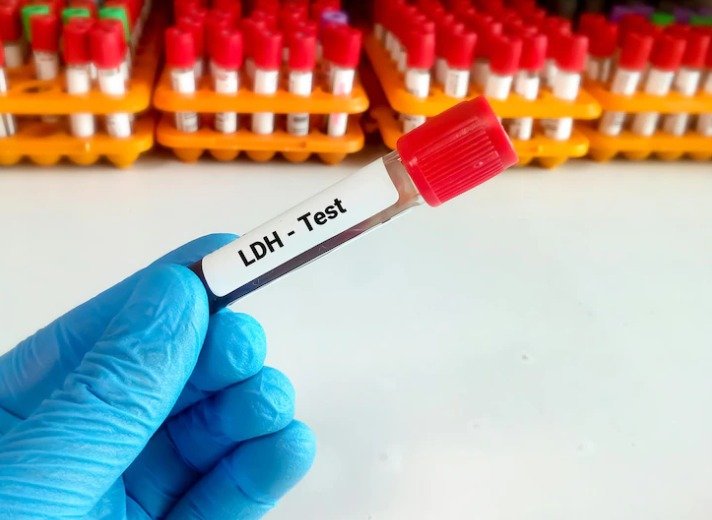
Lactate dehydrogenase (LDH) is an enzyme found in almost all cells of the body. The LDH blood test measures the amount of LDH in the blood, which can help diagnose and monitor various medical conditions.
What Is the Need of LDH Blood Test?
The LDH blood test is used to evaluate the severity and progress of a wide range of medical conditions, including liver disease, heart disease, anemia, infections, cancer, and tissue damage. The LDH level is often used in conjunction with other tests to diagnose and monitor these conditions.
Outcomes:
The LDH blood test measures the amount of LDH in the blood, which is reported in units per liter (U/L). Normal LDH levels can vary depending on the laboratory that performs the test. However, LDH normal range include:
Adult men: 135 to 225 U/L
Adult women: 135 to 225 U/L
Children: 100 to 300 U/L
Elevated LDH levels can indicate a wide range of medical conditions, depending on which type of LDH is elevated. LDH is made up of five different subunits, and each subunit is found in different tissues throughout the body. When tissue is damaged or destroyed, LDH is released into the bloodstream, causing an increase in LDH levels.
For example, an elevated LDH-1 level may indicate damage to the heart, while an elevated LDH-2 level may indicate damage to the lungs. An elevated LDH-5 level may indicate liver disease, while an elevated LDH-3 level may indicate muscle damage.
Ranges:
The normal range for LDH levels can vary depending on the laboratory that performs the test. However, the following ranges are generally considered normal:
Adult men: 135 to 225 U/L
Adult women: 135 to 225 U/L
Children: 100 to 300 U/L
It is important to note that LDH levels can be affected by a wide range of factors, including age, gender, pregnancy, medications, and medical conditions. Therefore, it is important to discuss your LDH levels with your healthcare provider to determine the appropriate course of treatment if your levels are abnormal.
Preparation:
There is no special preparation required for the LDH blood test. However, it is important to tell your healthcare provider about any medications or supplements you are taking, as these can affect the results of the test.
In conclusion, the LDH blood test is a simple blood test that measures the amount of LDH in the blood. An increased LDH may indicate serious underlying diseases and conditions, even though it is not always cause for alarm. Because of this, it’s crucial to work with your doctor to identify the root of your elevated LDH and address any underlying issues.
Make sure you are giving your body adequate time to recover between sessions if you are indulging in vigorous forms of exercise or training.
For More Blog Click Here





